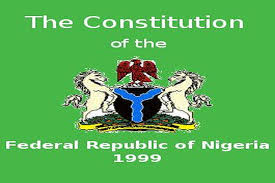The Muslim Ummah South West Nigeria (MUSWEN) weekend reiterated its demand for the setting up of Shariah court to regulate the affairs of Muslims in the South West.
MUSWEN made the demand during the South West public hearing by the Senate Committee on Review of the Constitution held in Ikeja, Lagos.
The organisation in its memorandum stated its position, citing section 38 of the 1999 Constitution, which provides for freedom of religion, while section 42 outlaws any form of discrimination, either in terms of religion, age, gender, language or tribe.
The association was represented by the trio of Tajudeen Balogun, Safiyullah Oladipupo and Abdul Jeleel Olayinka, who insisted that Shariah and regular courts should co-exist in every state of the federation.
The organisation noted that the government has an obligation to provide for the accessibility of the right to justice for all citizens, Muslims or otherwise, adding that there are certain aspects of a Muslim’s life which cannot be provided for or protected by the conventional courts.
“Instances are marriage, divorce, inheritance, zakat, etc. Thus, Shariah Court as well as Shariah Court of Appeal should be provided in all states, so as to make law and justice accessible to everyone, regardless of where they may reside or their religion,” it said.
It noted that the late Justice of the Supreme Court, Niki Tobi (a devout Christian’s) position on Shariah was instructive.
It noted that the late jurist affirmed: “Islamic law, unlike customary law, is written. Islamic law is rigid, precise with divine ossification and rigidity.
“There is no basis for any speculation or conjecture as in the case of customary law. The acceptability of Islamic law is a divine command by Almighty Allah and therefore spontaneous on the part of all Muslims. Islamic law therefore does not depend on its acceptability by Muslims because that is taken for granted. Any person who disobeys the divine words of the Quran cannot call himself a Muslim. Such a person is not with Allah and will be regarded as an unbeliever,” the memorandum reads.
MUSWEN noted that discrimination against Muslim women and girls either at work place, school or other public places for using hijab is a violation and contradiction to Section 42 of the 1999 constitution.
“It is therefore strongly recommended that the constitution be strengthened to protect the Muslim women against discrimination, particularly with regards to dressing and the use of hijab, either in schools, work places and/or public offices,” they posited.
